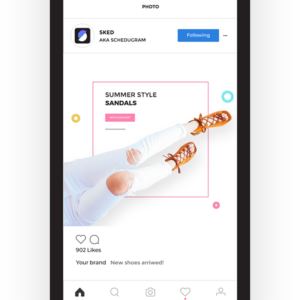
The job search process is not a piece of cake. From crafting a resume to networking to interviewing, it’s stressful. But add the challenges of applying for jobs after 50, and it can feel like you’ve entered a new, tougher arena. Let’s review some strategies and tips to get hired after 50 that will give you an edge.
But first things first.
How to Get Hired After 50: Your Mindset
Before I share strategies and tips to land a job after 50, let’s talk for a moment about the mindset you need for your job search.
Time and time again, I encounter people who are ashamed of their age and feel it will hold them back from landing the job they want. I know I’ve been there myself. Maybe you had a bad past experience or worry that everyone applying is so much younger.
This becomes a self-fulfilling prophecy.
First, we need to break this chain.
Forget about your age. It is, after all, just a number.
Instead, focus on the experience you have and skills you’ve learned along the way. That experience is something younger candidates lack. And that is one of your biggest assets.
Beyond your experience, you have wisdom. You have learned some hard truths including how to establish and maintain professional relationships that younger people still have to learn.
Take the time now to shift your point of view. Learn to see your age as a positive asset that will make you more valuable to your future employer. This mindset, plus the necessary resources, will make it easier to find and land the job you want.
Questions About How to Get Hired After 50
Now let’s talk about the specifics of landing a job after 50.
What should you know about writing a resume?
What skills do you need?
How do you nail the interview, even when they ask pointed questions about your age?
I talk about all of that and more below.
How to Get Hired After 50: 7 Tips That Will Put You Ahead of the Competition
1. Update Your Resume
Give your resume a competitive edge by updating it for a modern job search.
Nowadays, your resume doesn’t just go to another human. Before it crosses someone’s desk, it’s usually reviewed by an applicant tracking system. This software organizes your information and scans it for industry keywords. If your resume lacks these keywords, it will likely be weeded out.
How do you combat this? Ensure you are current with the latest resume best practices. This includes knowing what keywords to include in your resume. To uncover the proper keywords do a brief Google search for resume keywords in your industry. Scan a company’s job description. Often, the words in their description are the ones that they seek in resumes.
And although it’s illegal to discriminate against someone based on their age, it’s best to safeguard your resume against such discrimination. Here are a few ways you can do this…
- Go back only about 10-15 years in your job history.
- Remove graduation dates from your education section.
- Focus on the skills and experience you have.
- Use a gmail account instead of hotmail or aol or other outdated email platforms.
2. Invest in Personal Branding
Personal branding might be the biggest key to how to land a job after 50.
What is personal branding?
Personal branding is the practice of marketing and promoting yourself just as you would a brand. A personal brand is more than your name and job title — it embodies your personality, values, and expertise.
Here are some ways to establish your personal brand.
First, establish a digital presence. Whether it’s on your website or on a network like LinkedIn, build up your brand by featuring your skills and experience. Create content that showcases your expertise, perhaps in a blog post or a LinkedIn article.
Then, use other social media networks to connect with others in your industry. Join groups on social media networks like Facebook and LinkedIn. Seek ways to engage others, perhaps by commenting on their posts or answering questions that pertain to your expertise.
This might seem like a lot of work, but it pays off. A personal brand has the power to give you name recognition within your industry and to distinguish you from other job candidates.
4. Use LinkedIn
While I’ve already mentioned this as part of your personal branding strategy, it deserves a separate point.
LinkedIn is a powerhouse for any older professional. Consider some statistics. 55 million companies are listed on LinkedIn and around 14 million jobs are posted at any given time. 87% of recruiters report using the site regularly. You’ll even notice that many online applications ask for your LinkedIn URL as part of the process.
Post your profile and work experience on LinkedIn. If you haven’t been on the network in a while, update your profile with the most recent information and skills you’ve acquired.
Connect with others on the network, engaging with other professionals in your industry. You never know when such networking will work in your favor.
5. Learn How to Use the Latest Tools
Have you ever read a job description that fit you perfectly…until you got to the part about some software they use? This will happen from time to time, but don’t let it dissuade you from applying. There is an easy solution.
Take the time to learn the skill or the software that the job requires.
YouTube is a bonanza of free video tutorials that explain how to use specific software systems. Usually you can find an online course to show you how to use specific software.
Once you take an online course or certification, list this software as a skill on your resume. No one needs to know when you received it.
What specific tools may an organizationwant?
For starters, productivity and team management tools like Slack, Asana, and Trello are fast becoming a key way for teams to communicate and assign tasks. Having these on your resume can show recruiters that you’ll fit right into their team.
Video communication tools like Zoom and Google Meet have become an integral part of daily work, even as we near the end of the pandemic. You’ll want to master these tools now, since many recruiters are using them to interview job candidates. You don’t want to be muddling your way through these tools, while also trying to put your best foot forward during the interview.
6. Embrace Your Age
While you can usually keep your age under wraps, you can’t hide it forever. It’s better to own it in a subtle, positive way. As we discussed at the outset, you should view your age as an advantage in terms of the knowledge and experience you’ve gained during your time in the industry.
The better you can articulate the value of your experience and expertise, the more comfortable those around you will be. If you act apologetic about it, they will think it’s something to be ashamed of.
6. Do Interview Practice Sessions
You’ve made it through the application process — hooray! But your work isn’t over quite yet. The next hurdle of how to get hired as an older worker…
The interview.
Interviews are probably the scariest part of any job search. Prepare yourself ahead of time by going over the most common interview questions. As I’ve mentioned, a question about your age may come up during the interview, so prepare how you will handle that question. Practice it until it comes out naturally. Remember it is illegal to address age but if someone says for example, “You’ve been doing this a long time,” you can respond: “Yes, and I love it more each year. I continue to acquire more skills that keep me on top of my game.”
You might want to hire an interview expert to coach you through the hard questions and provide feedback before the interview day arrives.
7. Analyze the Work Environment
As much as a company is interviewing you, you are interviewing the firm to ensure it is a good fit for you.
Be alert to warning signs of a toxic work environment. When you look around at your future colleagues, is it an atmosphere where you think you’ll be comfortable? If a supervisor or CEO conducts one of your interviews, do you see yourself being content working under them?
Ask pointed questions during the interview process to make sure it’s the kind of environment where you’ll be happy.
Now That You Know How to Get Hired After 50
It can be scary to be searching for another job after 50. But remember, you have learned a lot in your time in the industry. You have earned your stripes and companies would be downright lucky to have you.
Be proud of your age and all the experience, knowledge and wisdom it represents. With these tips under your belt, you are ready to go out and nail that job application and interview.
Let’s do it.
Photo by Tim Swaan on Unsplash
Business & Finance Articles on Business 2 Community
(65)
Report Post







